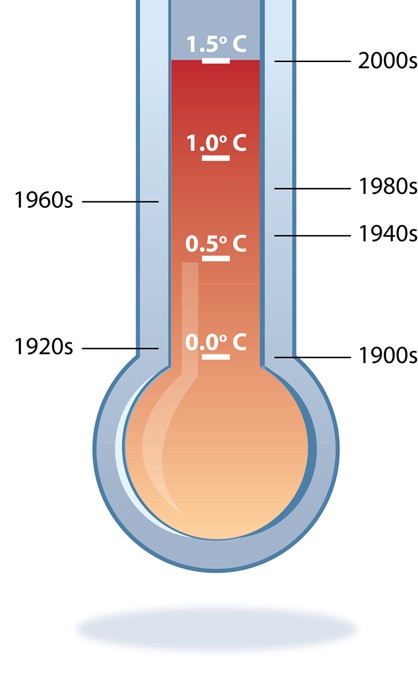Temperature

What is happening?
Temperature has been recorded every day at weather stations across New Brunswick for many decades. Temperatures have increased by 1.5 °C over the last hundred years, and 1.1 °C over the last thirty years. Spring, summer, fall, and winter average temperatures have increased in all parts of New Brunswick.
Why is it important?
Temperature affects many aspects of our daily lives. It affects our communities (e.g. energy use, infrastructure), our jobs (e.g. agriculture, natural resources, tourism & recreation), our wellbeing (e.g. health) and our environment.
Long-term shifts in temperature are an important climate change indicator because changing temperatures affect every New Brunswicker in some way.
What is predicted to happen?
In New Brunswick, temperatures are expected to increase by 2-3 °C by the 2050s relative to the 1961-1990 period. This predicted increase is much greater than the change we experienced over the last thirty years. New Brunswickers should be thinking about how their lives are currently affected by unusually warm temperatures in all four seasons.
Information sources
Environment Canada and Government of New Brunswick
